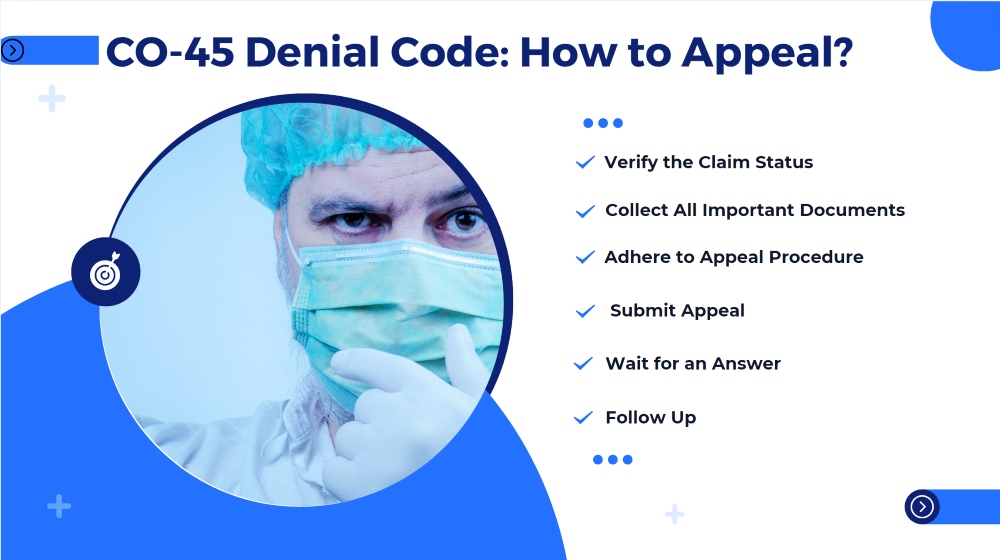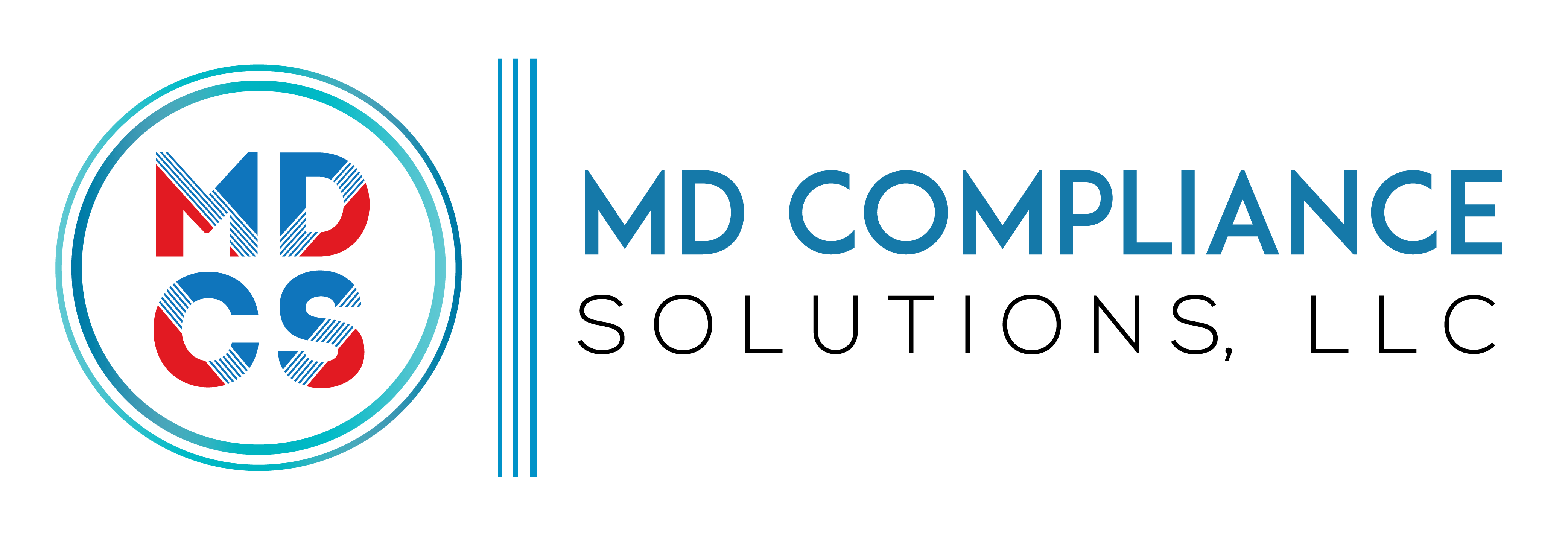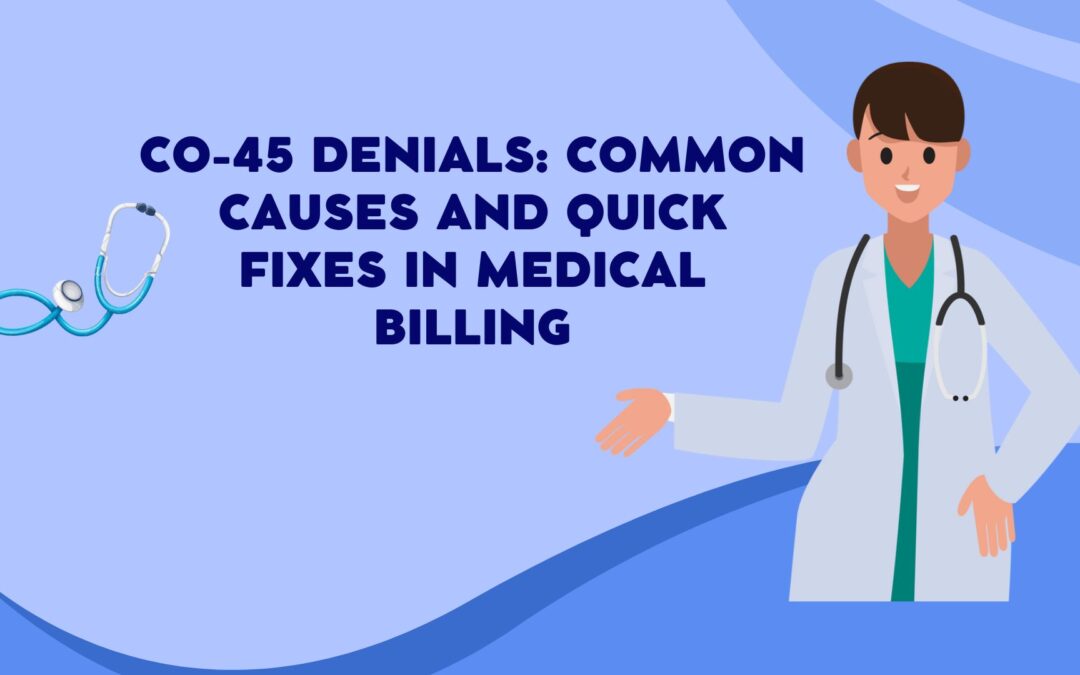Table of Contents
Have you been working long hours and giving your patients the best care possible, hitherto you keep getting unexpected costs and payment rejections? Being a healthcare expert is difficult enough without having to deal with the complex world of insurance claims and medical billing.
Regretfully, you can run into secretive denial codes that are problematic to decipher and utilize. If you are a healthcare professional, you may have seen the CO-45 denial code on your claims. This code denotes that the charges are higher than the agreed upon contract or legislative fee arrangement, the price schedule, or the maximum amount allowed. Put otherwise, the insurance company has paid you less than what you were invoiced for the service, in accordance with your agreement with them.
This can be rather annoying and perplexing, particularly if you are attempting to figure out why the rejection happened or how to fix it. This article will decode the CO-45 denial code, its causes, and easy ways to get your claim denied.
Decoding the CO-45 Denial Code?
Medical billing is a complex procedure, including numerous codes, rules, and standards. A typical notification known as “CO-45 denial code ” tells you about a claim that the insurance provider is unable to approve. This is an example of a claim adjustment reason code (CARC), which is used to explain a payment reduction or denial.
“CO” refers to “contractual obligation” in this context. These legal duties are derived from the legitimate agreement between insurance companies and healthcare providers. There may be a legally binding agreement in a contract between these two organizations regarding the services and costs that will be provided.
Stated otherwise, it is the discrepancy between the amount a doctor bills for a service and the maximum that the insurance plan, as stipulated in the contract, will pay. The pricing, maximum number of units, or hours or days for a certain treatment may all be specified in this agreement.
For instance, if the insurance company agrees to pay $150 for a chest X-ray but the doctor bills $170, the claim will be rejected using the CO-45 code, giving the doctor only $150.
CO-45 Denial Code Causes
The replacement claim filed to correct errors or omissions in the initial claim is the only one to which the CO-45 code should be applied. The most frequent reason for the CO-45 is that the doctor overcharged for the medical services, exceeding the insurance plan’s contractually permitted amount. There are a few reasons why this might occur, including:
1. The doctor neglected to revise their charge schedule in light of the most recent modifications to the agreement.
2. The patient’s eligibility and benefits are not confirmed by the doctor prior to the service.
3. The doctor either used the wrong modifier or disregarded the coding guidelines.
4. The doctor failed to record the service’s medical need or reason.
The claim being filed more than once for the same service is another reason why the CO-45 denial code may have occurred. This is a duplicate claim, and it may be rejected or receive a smaller reward. This may occur for a number of reasons, including:
1. The doctor never got a confirmation that the claim was filed or paid.
2. The doctor submitted the claim again without first checking its status.
3. For the same service, the doctor used different billing details or identities.
4. The doctor filed several claims for various service dates and places.
How Can CO-45 Denial Codes Be Avoided?
An insurance company’s contract terms and conditions are the ultimate strategy to prevent the CO-45 denial code. This implies that you should only bill for the services rendered in accordance with the terms of the contract and only file a claim once.
Before sending your claims to the insurance provider, you can also use a clearinghouse service to verify them. You can avoid denials by using a clearinghouse service to help you confirm the completeness and correctness of your claims, find any mistakes or inconsistencies, and fix them.
For instance, Etactics can assist you with claim scrubbing, real-time alerts on denials, and support with appeals if you utilize them as your clearinghouse service. They can also assist you with the administration of your claims from submission to payment, known as revenue cycle management (RCM). RCM can lower expenses, increase patient satisfaction, and optimize cash flow.
It is crucial to remember that initial claims or claims that call for the submission of extra information or evidence should not be made using the CO-45 code. Payment delays or claim denials may follow misuse of this code. The healthcare provider may suffer large financial losses as a result of this.
CO-45 Denial Code: How to Appeal?
If you receive a CO-45 denial code and think it was inaccurate or unreasonable, you have the option to appeal. First, you should verify the status of the claim and see if the money was applied to the patient’s coinsurance or deductible. If not, you can send the insurance company an appeal request together with the necessary supporting paperwork.
A copy of the claim, a copy of the contract, justification for your belief that the denial was incorrect, and any supporting documentation should all be included. Additionally, you must adhere to the insurance company’s appeal policies and timelines.
For instance, if Noridian is your insurance provider, you have 120 days from the date of the denial notification to file an appeal request. Your appeal request can be sent via mail, fax, or online through their portal.
You can also offer your patients remote patient monitoring (RPM) by using a telehealth service. RPM monitors and interacts with patients outside of conventional healthcare settings using digital health technologies. RPM can assist you in raising reimbursements, decreasing readmissions, and improving patient outcomes.
For instance, if you utilize Coronis for telemedicine, they may assist you with RPM solutions that are tailored to your patients’ needs and your practice. Interoperability, or the capacity of various health information systems to share and use data, is another area in which they can assist you. Interoperability can help improve care coordination, efficiency, and data quality.
It is crucial to collaborate with Medicare to find solutions once the problems have been discovered. To get information or help resolving the issues, this may involve getting in touch with the Medicare Administrative Contractor (MAC) or the Medicare Claims Processing Contractor (CPC).

Wait for an Answer
The insurance company will go through your appeal after it is submitted. Depending on the insurer’s procedure and the intricacy of the request, this could take a few weeks or even months.
Follow Up
In the event that you do not hear back from the insurance within the allotted time, do not be anxious to follow up. When doing so, make sure you have all the information from your initial appeal. Recall that the most important thing is to be succinct and to provide all the details you need to back up your claims. You have a strong possibility of overturning the denial if you take the appropriate steps and provide the necessary paperwork.
Bottom Line
The CO 45 denial code, which is common in medical billing, can present major revenue and cash flow issues. Medical billing frequently uses the CO-45 denial code, which can have an impact on your cash flow and income. It indicates that your charges go beyond what is specified in the insurance company’s contract or fee schedule. You should take the following actions to avoid or contest this denial code:
1. Examine the terms and conditions of your insurance policy with the provider.
2. Charge just the amount specified in the contract for each service.
3. Send in a single claim for each service.
4. Take advantage of a clearinghouse service to verify and update your information.
5. Examine the specifics of your payment and claim status.
6. Send in an appeal request together with any necessary supporting evidence.
7. To provide your patients with interoperability and remote patient monitoring, use telehealth services.
We hope that this blog post has clarified the CO-45 denial code and provided information on how to get support. MD Compliance Solutions concierge is essential if you want to eliminate the CO-45 denial code and other billing issues. This comprehensive medical billing solution takes care of everything, including claims and collections. Get in touch with us right now, and we will handle your bills so you can focus on caring for your patients.
Read More: Know the Difference: Upcoding and Downcoding in Medical Billing

Reference: 1

